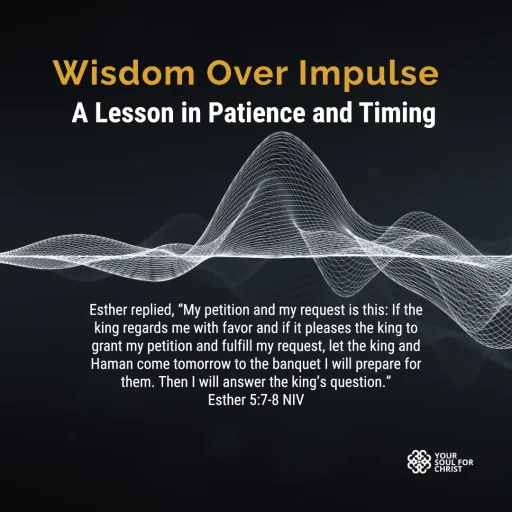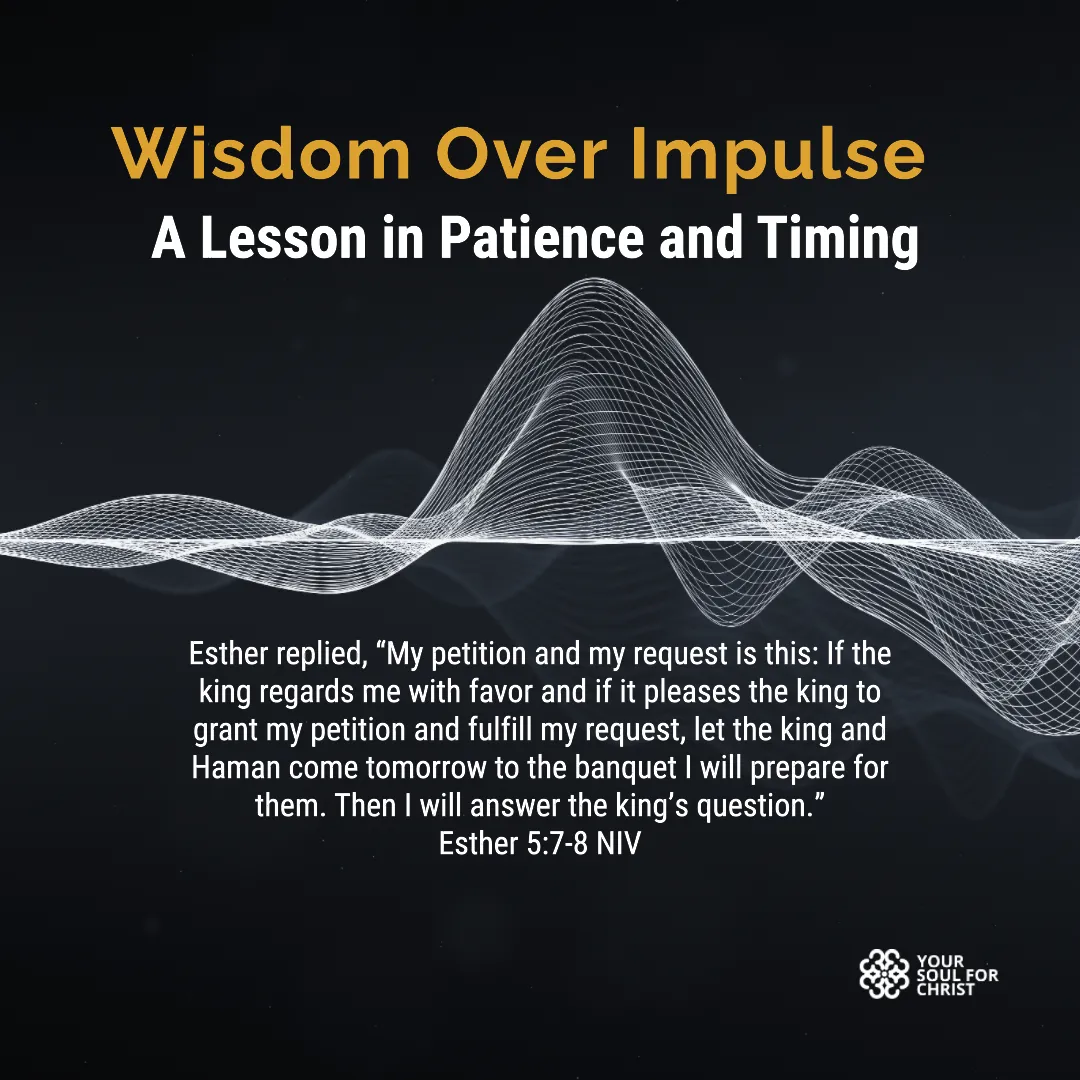Esther replied, “My petition and my request is this: If the king regards me with favor and if it pleases the king to grant my petition and fulfill my request, let the king and Haman come tomorrow to the banquet I will prepare for them. Then I will answer the king’s question.”
Esther 5:7-8 NIV
There was a remarkable precision with which Esther voiced her request to King Xerxes. If you read the preceding verses of this chapter, you will see how she found favour with the king, even though, by law, she was not permitted to approach him without being summoned. However, when the king asked what she desired, Esther did not act on emotion. Instead, she chose wisdom over impulse, demonstrating patience and restraint that can only be inspired by divine insight.
Esther did not rush to pour out her heart. With God’s wisdom, she understood that timing was just as crucial as intention. Although the king was willing to grant her request—even up to half of his kingdom—she did not allow the open door to lead her into rashness. Instead, she waited. She sought the right moment and crafted her words with care. Her actions reflected a woman who was being led, not by her emotions, but by spiritual discernment.
We do not know what might have happened had she spoken too soon, but one thing is certain: her story teaches us that there is no blessing in haste. In a moment when everything seemed aligned in her favour, Esther still prioritised wisdom over impulse. She planned her approach with intention, proving that being led by God requires more than boldness—it requires discipline.
The Book of Proverbs warns that it is foolish to speak without thinking or to act without caution (see Proverbs 29:20). In contrast, a wise person guards their lips and considers their steps. Even when we have the right opportunity or the influence, we must not be careless. Esther’s story calls us to discernment—to think, pray, and wait for the prompting of the Holy Spirit before we act.
Even Jesus embodied this same approach. When the woman caught in adultery was brought before Him, the religious leaders tried to trap Him into condemning her. Yet Jesus paused. He drew in the sand. He waited. In that silence, He chose wisdom over impulse. His restraint not only spared the woman but also silenced her accusers and redirected the moment toward redemption rather than judgment.
In our daily lives as believers, we must learn to walk in the wisdom that comes from God. There will always be moments when we feel the urge to respond quickly—to defend ourselves, to speak our minds, or to act immediately. Yet, choosing wisdom over impulse means we resist the pressure to be hasty and instead allow the Holy Spirit to guide us.
Living It Out
Will you choose wisdom over impulse today?
Before you speak, take a moment to pray. Not every situation requires a quick response—some moments require quiet, intentional waiting. Let the Holy Spirit guide your words and actions, even when your emotions urge you to act immediately. Resist the urge to react out of pressure. Instead, pause, reflect, and seek God’s peace. Ask Him for discernment in your decisions, and be willing to wait for His perfect timing.
Surround yourself with godly counsel—people who help you think clearly and spiritually. Let their insights sharpen your perspective and keep your heart aligned with God’s will. Above all, pursue a heart that longs for God’s wisdom more than personal vindication. In doing so, you’ll walk in the kind of spiritual discipline that marked Esther’s courage and Jesus’ restraint.
Start today: Pause. Pray. Listen. Then move—only as the Spirit leads.

